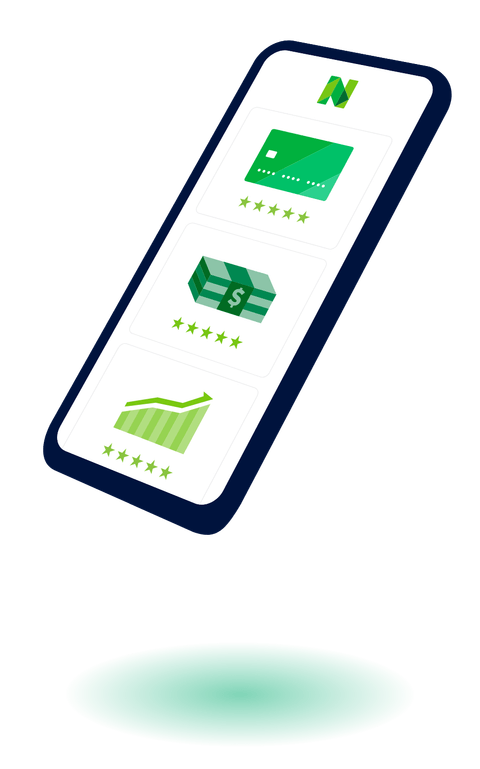How to Start an Insurance Company
Become a licensed insurance agent, then create a business plan and formalize your company.

Many, or all, of the products featured on this page are from our advertising partners who compensate us when you take certain actions on our website or click to take an action on their website. However, this does not influence our evaluations. Our opinions are our own. Here is a list of our partners and here's how we make money.
Starting an insurance agency is a lot like starting any business. You’ll need to choose a business structure, register and license your business, get insurance and more.
But you’ll also need to become a licensed insurance agent and learn how to navigate a highly regulated field.
Here’s how to get started.
Smart money moves for your business
Grow your small business with tailored insights, recommendations, and expert content.

1. Become a licensed insurance agent
You can get an insurance agent license in a matter of weeks or months, depending on the requirements in your state. Here are the steps to follow:
Learn about your state’s licensing process. The National Insurance Producer Registry or your state’s branch of the Independent Insurance Agents and Brokers of America can help you understand those specific requirements.
Decide what type of insurance to sell. You can be licensed to sell several different “lines of authority” or types of insurance. The most extensive lines of authority include:
- Property.
- Casualty.
- Life.
- Accident and health or sickness.
The names of these lines of authority may differ in your state. You can be licensed to sell multiple lines of authority. Life and health are often offered as one package, as are property and casualty.
In general, most types of business insurance are property or casualty policies. With a property and casualty license, you can sell personal and commercial insurance. Most agents choose to specialize in one or the other, though.
Take a pre-licensing class. Your coursework should focus on the type of insurance you choose to specialize in. Courses can be done in person or online in most states.
Schedule your licensing exam. These are usually administered at testing centers run by third-party testing companies, which may immediately inform you of the results.
Apply for your license. Submit your licensing application to your state’s governing body. You’ll need to provide personal information, such as your Social Security number, date of birth and residency information, and pay any applicable fees. If your application is approved, you’ll be able to sell insurance products.
If you’re new to selling insurance, you may want to get some experience working for an insurance company or another brokerage before venturing out on your own.
2. Write a business plan
Your business plan outlines what you want your business to look like and how you plan to get there. The process of writing it should force you to answer complex questions, like what unique value you’ll offer customers and how much money you’ll need to get started.
3. Choose a business structure
Your business structure determines how your business profits are taxed and how your personal and business assets are kept separate, among other things.
There’s also an insurance-specific question you’ll need to answer: Whether you want your insurance agency to work with one specific insurer or with many different providers.
Captive agents (agents who work with a particular insurance company) can benefit from brand recognition and don’t have to convince insurers to work with them. But, on the other hand, they can only sell a limited suite of insurance policies. For example, State Farm works with a network of independent contractor agents who run their agencies but only sell State Farm products.
Many other insurance agency owners are independent agents, selling products from multiple insurance companies. Independent agents might have to work harder to establish and market their brand to customers and insurers, but they can start relationships with many insurance providers.
4. Register and license your business
Before running your business, you’ll need to register with your state, typically with the secretary of state’s office.
Most insurance businesses will probably need to apply for an employer identification number from the IRS. With an EIN, you can open a business checking account.
As part of this process, make sure to obtain a business license, a sales tax permit and any other documents your state or city requires.
Your business entity may also need a license from your state's insurance department. Check your state’s requirements to find out what you need.
5. Get business insurance
As an insurance agent, you already know how important it is for your customers to be fully insured. Get business insurance to protect your business assets.
Most insurance companies are likely to need professional liability insurance and general liability insurance. Depending on your agency’s size, location and day-to-day activities, you may also need commercial auto insurance, workers’ compensation insurance and other types of business insurance.
6. Form relationships with insurance companies
If you’re an independent agent, you’ll need to apply to work with any insurance companies whose products you want to sell. If they approve your application, they’ll grant you an appointment to sell their policies.
It can be challenging to start relationships with insurance companies directly without having several years of experience and a client base.
Joining a professional association, like the Independent Insurance Agents and Brokers of America, or an agent network like Smart Choice, can help you access insurance providers to sell their policies. These groups may also provide marketing materials, discounts on your business insurance policies, and other resources.
7. Grow your client base
If you choose to start an independent agency, you may have to hustle for your first few clients. Start by joining your local Chamber of Commerce, attending networking events and advertising in your local market.
Having an online presence is essential, too. Make sure your website clearly outlines what kinds of insurance you sell and the customers you serve. Information about how to contact you should be easy to find.
If you start an agency affiliated with a particular insurance company, you might get referrals as customers seek out agents near them. However, you’ll probably need to do local marketing too.
Article sources
NerdWallet writers are subject matter authorities who use primary,
trustworthy sources to inform their work, including peer-reviewed
studies, government websites, academic research and interviews with
industry experts. All content is fact-checked for accuracy, timeliness
and relevance. You can learn more about NerdWallet's high
standards for journalism by reading our
editorial guidelines.
Related articles







